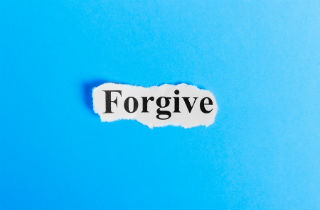“We love because he first loved us.” 1st John 4:19
Forgiveness: God’s Gift in Recovery
Forgiveness in recovery is an important part of healing your broken heart, healing oneself, and in repairing relationships with family and friends. While the Bible assures Christians of God’s forgiveness, His strength also helps those in drug rehab extend that forgiveness to others.
Each person has a sense of what it means to forgive and be forgiven. Psychologists often define forgiveness as a deliberate and conscious decision to release feelings of resentment or anger towards a person or group of people who have caused harm. Forgiveness can also be towards oneself, which is important during recovery from drug and alcohol addiction.
“Come now, let us reason together,” says the Lord. “Though yours sins are like scarlet, they shall be white as snow; though they are red as crimson, they shall be like wool.” Isaiah 1:18
Regardless of the damage done to one’s body, or the disappointment caused to others during active addiction, forgiveness in recovery is supported by God’s word and the Christian 12 steps.
Forgiveness May Not Always Mean Being Forgiven By Others
There is no guarantee that friends and loved ones will be forgiving in turn, even though someone is able to reclaim a life of sobriety and health. And even though forgiveness may be given, it does not mean that others forget, or aren’t fearful that recovery won’t be long-lasting. Asking for forgiveness of oneself and others is still an important and powerful tool. Seeking forgiveness in recovery is a way of being free from anger, and of being at peace. This is important for all humans, in all walks and situations of life. It is empowering to recognize mistakes that were made, and then grow from this place of recognition.
“Who is a God like you, who pardons sin and forgives the transgression of the remnant of his inheritance? You do not stay angry forever but delight to show mercy. You will again have compassion on us; you will tread our sins underfoot and hurl all our iniquities into the depths of the sea.” Micah 7: 18-19
Life after Recovery Involves Daily Forgiveness
Part of drug and alcohol addiction treatment involves the understanding recovery is an active process that lasts a lifetime. God is present in each step of this process, providing His continued love and support. Having a relapse plan is the honest recognition that there will be difficult aspects of recovery, and moments of weakness. This may mean having cravings triggered, or it may mean feeling lonely and discouraged at times.
“Never will I leave you; never will I forsake you.” Hebrews 13:5
Self-forgiveness in recovery
Self-forgiveness in recovery involves:
- Accepting that we are all human, and all make mistakes
- Recognizing that not forgiving is the harder and more destructive path
- Stop self-punishing, both physically and emotionally
- Ask God for help during the journey of forgiveness
- It is important to apologize, but not to expect forgiveness given from others
Without forgiveness of oneself, and of others, the darker emotions that supported the addiction remain active. Forgiveness in recovery can take time. It may involve a slow and gradual path, but that is all part of true healing.









Related Posts